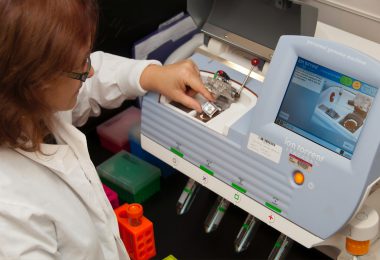After Dolly’s successful cloning of the sheep in 1997 was revealed, the potential of human cloning became public. It has received a lot of attention and since then has generated a lot of debate in the United States and across the world. Many individuals find the concept of producing children unpleasant and believe that it is unethical, which are genetically almost like pre-existing humans. Other individuals think, however, that cloning may help infertile couples and society as a whole. Some want to make it illegal, and several nations have done so already. Others believe that the benefits outweigh the risks and moral issues or that public involvement in the name of freedom and progress with science and technology is unjustified.
The discovery in 1998 of human embryonic stem cells, which many experts believe is promising to study and cure many chronic diseases and disorders, made human cloning public discussion difficult. Some experts consider that stem cells from cloned human embryos, which were specially developed for this study, may be particularly useful for investigating and creating novel therapies for a broad variety of genetic diseases. Some Americans are looking to advance scientific study and help illness and suffering, while others are concerned about the exploitation or misuse of nascent human life, as well as the consequent danger of moral insensitivity and degradation.
Context human cloning
It is a good idea to begin by looking at the topic of human cloning. The potential of human cloning is now before us, not as a result of broad popular demand or a prolonged need. It was not initially investigated as a therapy for the disease, unlike other medicinal treatments attempted. It was also not explicitly explored as a way to genetically manipulate or “enhance” human offspring. In recent decades, cloning has been a natural extension of some biotechnological discoveries and has not been intentionally carried out for its own purposes.
Biomedical specialists have gained incredible new insights into the workings of living things for more than half a century, from small to big, and at an increasing pace. They also provide more and more accurate and sophisticated information about the human body and mind. This knowledge of how things operate frequently leads to new technical skills in controlling or modifying those works, power which is usually intended to heal human diseases and relieve suffering.
Cloning as a Life Threat
Cloning may appear a fresh method to generate rather than destroy human life, but that’s not the case. However, after closer examination, its evil aspect becomes obvious. Dolly was the only cloned sheep to survive after 277 tries. Those who reach the birth room have severe medical difficulties. For example, Dolly was diagnosed with arthritis at an early age and survived after being diagnosed with just half her anticipated lifespan. Even if the pregnancy is successful, there’s still a risk of “big offspring syndrome,” and other difficulties for the mother and her children. For the purpose of this debate, anybody who decides to reproduce in this manner has to ignore both the child and the mother’s life and health in order to focus on the apparent advantages of producing a much younger “copy.” A hazardous and ethical experiment is being carried out with moms and children cloning human reproductive parts.
Human Dignity and Cloning
The essence of the human being and his actions”. By understanding the basic character of human reproduction, we may realize the incompatibility of cloning with that nature.
In a passionate hug, a couple shows their devotion for one another and, at the same time, conveys their desire to cooperate with God to produce a new person who they love and care for in intercourse. Our willingness to embrace new experiences is the tone for our attitudes towards our children for the rest of our lives. We know that our children are the result of our self-giving love; that their composition will represent a unique and unforeseen mix of the traits of both parents; that we provide the chance to complete God’s creative action rather than force the birth of a particular kid. We have a profound appreciation of the creative function of God because of the nature of our procreative effort.







[…] since companies now have to buy or lease less office space and employees also spend less time traveling. The major benefit, though, is that companies are no longer limited by geography in their […]